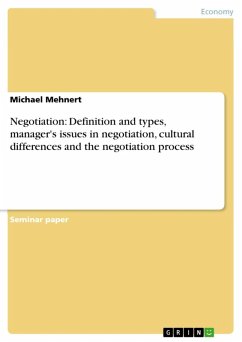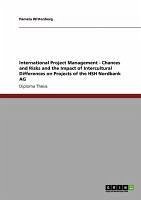Seminar paper from the year 2011 in the subject Business economics - Business Management, Corporate Governance, , language: English, abstract: This seminar paper deals with Sweden and Germany as negotiation partners from a German perspective. Although one would assume quite various similarities between these countries due to geographical proximity and same origin of language, they are indeed quite different - an issue also investigated by Eoro Vaara. The aim of this paper is to show that even slight or subtle differences in cultural patterns should be considered. Therefore only who can communicate without cultural misunderstandings can experience successful cross-cultural negotiations. Sweden has been chosen since there is a lot of research about cultural differences between American, Asian and Arab countries, but hardly any regarding inter-European. Another reason is also because of personal experiences in Sweden and with Swedish friends. It was challenging to investigate in a country, which does not seem to be culturally much apart from Germany. After a short introduction, the second chapter gives the reader a definition for culture and an overview of Hofstede's model of dimensions. This chapter also presents the different kind of cultures from a German and Swedish perspective. Therefore the third chapter deals with negotiations between Germans and Swedes while doing business. This paper ends with the chapter "conclusion".
Dieser Download kann aus rechtlichen Gründen nur mit Rechnungsadresse in A, B, BG, CY, CZ, D, DK, EW, E, FIN, F, GR, HR, H, IRL, I, LT, L, LR, M, NL, PL, P, R, S, SLO, SK ausgeliefert werden.









